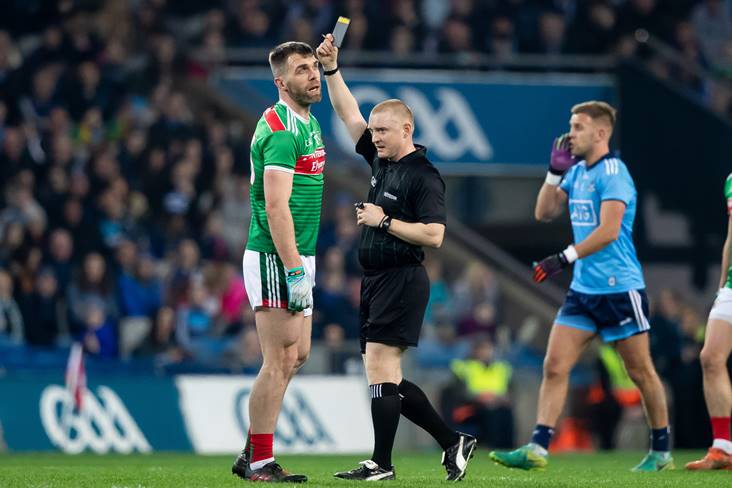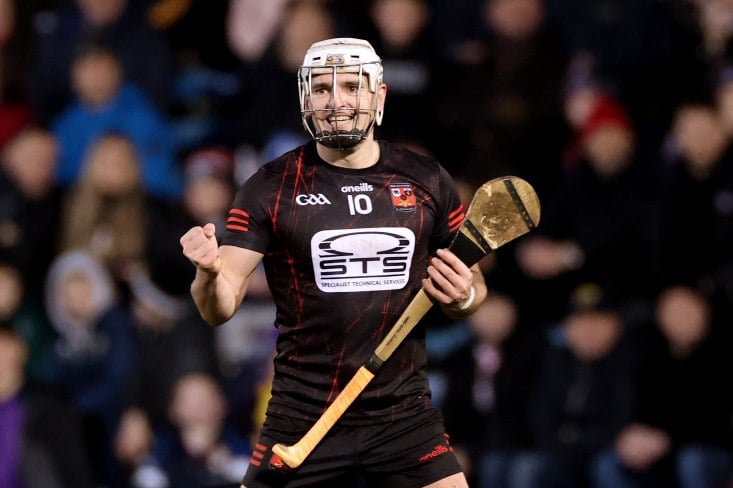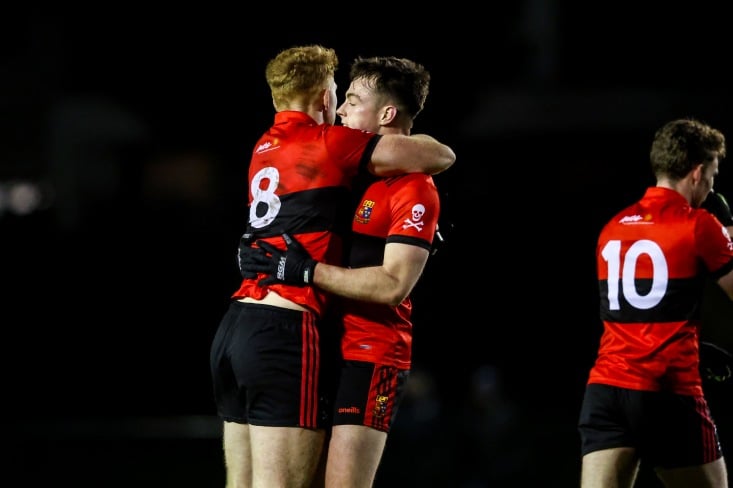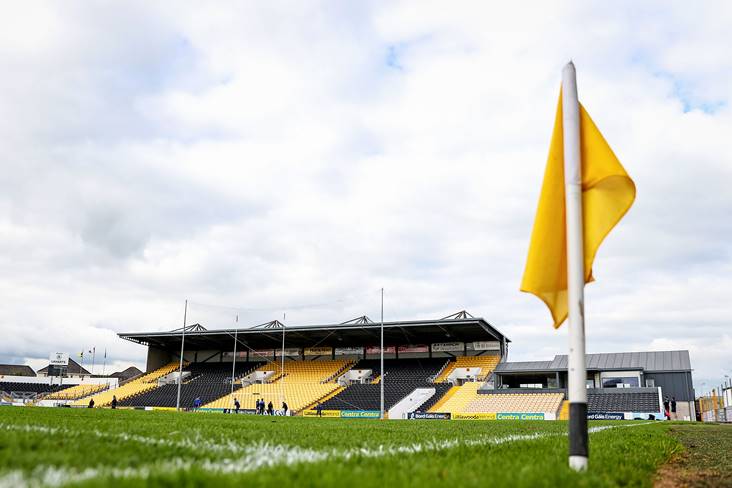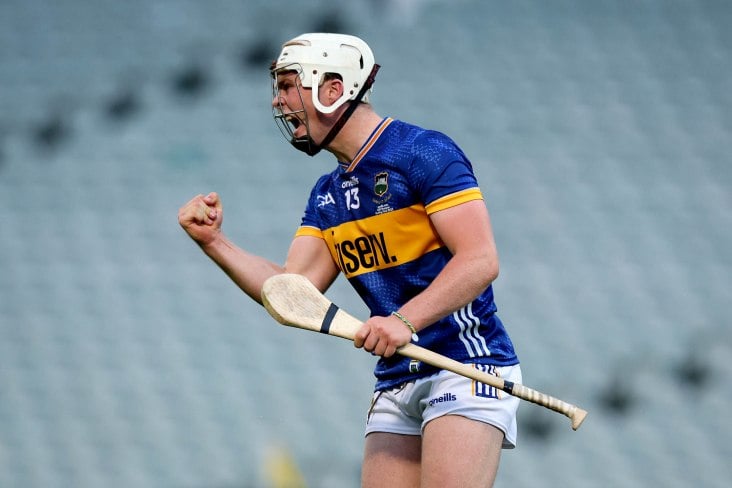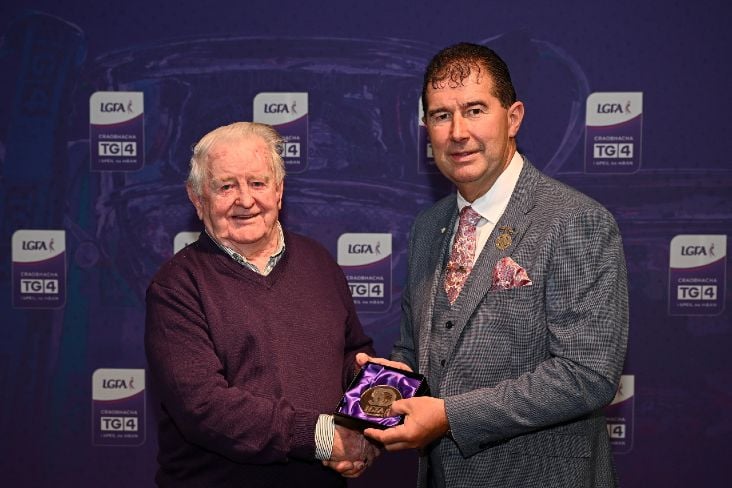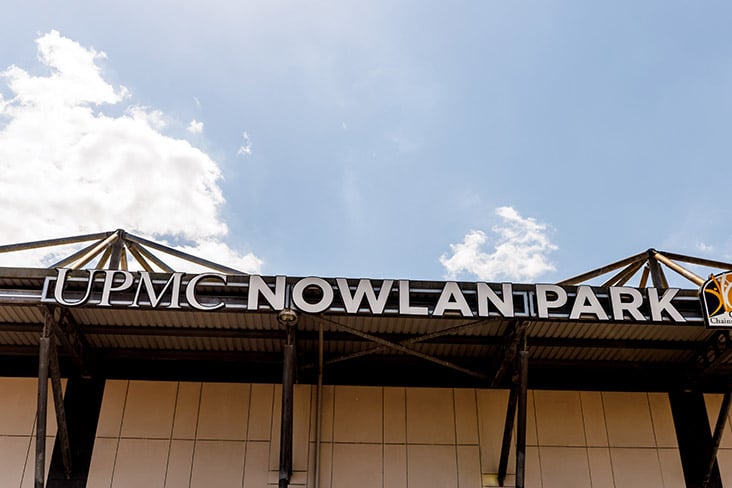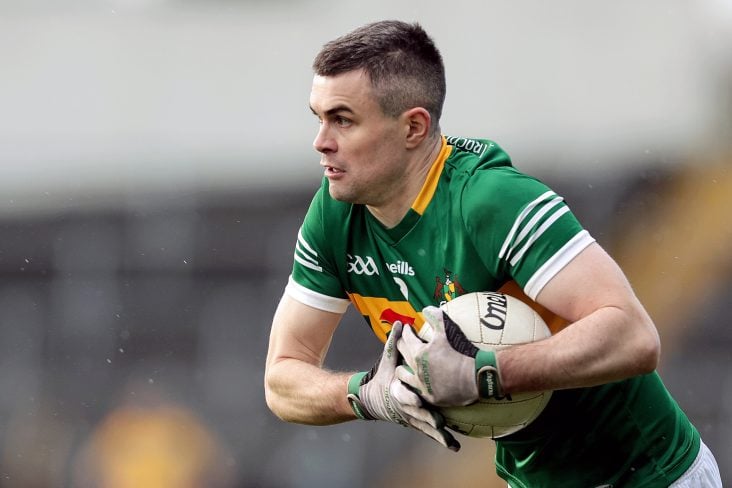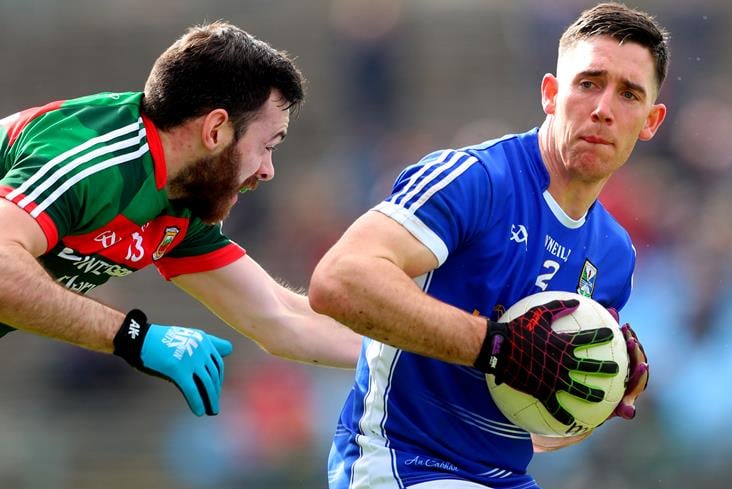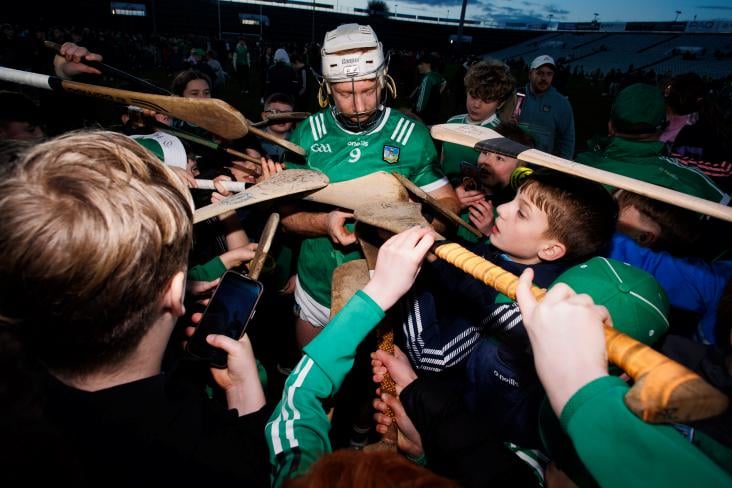The boylan leinster breakthrough - 25 years ago
November 27, 2011There were many in the attendance at Croke Park on Sunday, 27th July who couldn't remember a Meath team winning a Leinster SFC title. It had been 16 long years since that extraordinary recovery against Offaly in the 1970 decider which yielded a 2-22 to 5-12 victory and a 12th provincial crown.
In the years which followed it often appeared that a 13th title would never come. There were final appearances in 1973 when Offaly won comfortably and again in1974, 1976 and 1977 when Dublin got in the way. The only bright light was the surprise National League success in 1975 when a team coached by Mick O'Brien emerged from Division 2 to win the title with a thrilling final victory over the Dubs who were the reigning All-Ireland champions.
Some dreadful lows arrived in the early 1980s, particularly the first round championship defeats to Wexford in 1981 and Longford a year later, but with the arrival of Boylan definite signs began to emerge that Meath could turn the corner. By the summer of 1983 they had improved sufficiently to hold Dublin to a draw in the opening round of the championship, only to concede three goals in the replay and lose by a couple of points. Less than three months later Dublin won the All-Ireland title.
Meath claimed the Centenary Cup in 1984 and then won three games in the Leinster Championship to reach their first final in seven years, but with Mick Lyons an absentee through injury Dublin won by four points. Rapid progress had been made since Boylan answered the call in the autumn of 1982 and when championship time came around in 1985 hope had turned to optimism.
Kildare were pushed aside with reasonable ease in the opener at Pairc Tailteann, but a shattering defeat followed at Tullamore where Laois proved far too good, winning by 10 points. As the Meath players walked dejectedly off the O'Connor Park pitch a re-emergence in Leinster appeared as far away as ever.
Some of the more senior players, who would later share in so much success, could have been forgiven if they felt it was time to call it a day. They didn't and once the scars of that bitterly disappointing day started to heal there was a resolve to make amends and go all out for that elusive Leinster title.
Several new faces emerged for the 1986 campaign, including teak tough defender Liam Harnan and Brian Stafford, who was later to become one of the best free-takers in the country. They strengthened the Meath panel considerably, but the opening to the championship in mid-June wasn't overly convincing as Carlow were beaten by just three points at Dr Cullen Park.
Wicklow, who crucially defeated NFL champions Laois in the 'Battle of Aughrim' in their Leinster quarter-final, proved no match for Meath three weeks later in a semi-final at Newbridge and the scene was set for a second final meeting with Dublin in the space of three years. The Dubs had been seriously deflated by the loss of two successive All-Ireland finals to Kerry and there was a sense that Meath's big chance had come.
Meath played into the Canal End against a strong wind in the first half and an early point from David Beggy helped to settle them into the contest. Scores were always likely to be scarce in such atrocious conditions and the teams managed 10 points between them in that opening period.
Dublin led by only two (0-6 to 0-4) at the interval, but as the second half wore on it became increasingly obvious that Meath had built up a momentum and a belief in their own ability which would carry them to the title. They limited Dublin to a solitary point in that period and as the rain came down in torrents and the light faded dramatically they added five themselves to win by 0-9 to 0-7.
Finian Murtagh notched two hugely important scores in that second half as Meath gradually edged to the front, but Pat Canavan had a great opportunity to draw the sides level when he shot badly wide. Barney Rock was a big loss to Dublin after he retired injured and Ciaran Duff was off target with a couple of efforts after he had been given the free-taking duties.
The last score of the final came from Colm O'Rourke after a fisted delivery from Liam Hayes and when referee Seamus Aldridge sounded the last whistle it signalled scenes of high emotion and great joy.
It was Meath's first Leinster SFC victory over Dublin since 1964 and how sweet it felt. From the scene of dejection at Tullamore a little over a year earlier they had turned things around and were provincial champions.
The concession of a sloppy goal in the All-Ireland semi-final against Kerry proved costly and they lost by seven points, but it was clear that they had arrived in the big time again. Over the following few years Meath turned defeat into victory on many occasions as they became a seriously good team.
Boylan's 23-year reign brought four All-Ireland titles, eight Leinsters and three National Leagues and there were few more gratifying sights during those golden years than that of Joe Cassells raising the Delaney Cup on that wet July evening in 1986. He had laboured without much joy since 1974, but at a time when many playing careers would have been over he was about to enjoy an Indian Summer, highlighted by captaining his county to their second successive All-Ireland title in 1988.
Cassells had partnered Mick Ryan at midfield on the Meath minor team which won the Leinster Championship in 1972 and got his first taste of senior championship football two years later. He was introduced as a substitute in the provincial final which Dublin won by five points - the first of many disappointments he experienced at the hands of the Dubs before 1986.
"It was a feeling of relief more than anything else for that particular bunch of players, lads like myself, Gerry McEntee, Colm O'Rourke and Mick Lyons," Cassells said as he recalled that breakthrough success. "It was my fifth Leinster final. I played in the semi-final in 1974 and came on as a substitute in the final against Dublin.
"They also beat us in the finals of 1976, 1977 and 1984, so 1986 broke that trend. It was our first really big win. Brian Mullins wasn't there then. He had been a huge influence on the Dublin team. I played on him in the 1972 minor final, but after that I got used to looking at him winning.
"I don't think being captain really added to the 1986 win. It was just a big relief. I remember it was a very wet day and there was a lot of slipping and sliding. I was given the job of running after Tommy Carr. If he ran out the field I had to run after him."
Cassells was keen to acknowledge the important role a previous Meath All-Ireland medal winner played in the success.
"One man who gave us great confidence ahead of the final was Frankie Byrne," he added. "I remember he gave a team talk after training one night and said we were the best Meath team he had seen. That meant a lot coming from a man like him. It was a big boost to our confidence."
That very happy day in the summer of 1986 was a far cry from the scene at Tullamore a little over a year earlier when Meath suffered a shattering defeat at the hands of Laois. It was painful, but Cassells saw that game as a turning point.
"After winning the Centenary Cup and reaching the Leinster final in 1984 we hoped to push on," he added. "The defeat against Laois was a big disappointment, but it was also a turning point for Sean. It was his first year to pick his own selectors. What a start that was for Tony Brennan and Pat Reynolds.
"The panel had to be spruced up. They brought in Terry Ferguson, Kevin Foley, Liam Harnan, PJ Gillic, Brian Stafford and David Beggy. They were six very good lads who added strength to the panel."
Five of them lined out against Dublin in that 1986 Leinster triumph, before Kerry beat Meath in the All-Ireland semi-final.
"Playing me in a defensive role in Leinster was one thing, but against Kerry it was a different matter, especially with the likes of Ger Power there," Cassells said. "Brian Stafford was at centre-forward and Martin O'Connell was at full-forward, so there was still tweaking to be done with the team.
"The confidence we got from winning the Leinster title was a good thing, but we weren't functioning as well as a team as we needed to. But we gradually settled as a team after that, with players settling into positions."
The greatest days for that Meath team were still to come, including the county's first All-Ireland success in 20 years in 1987 when they beat Cork in the final.
"A major plus in 1987 was going on holidays," he added. "That helped the bonding of the players in a big way. The enthusiasm of the younger lads like Bernie Flynn and Bobby O'Malley rubbed off on us. In the past they looked up to us, but now we were taking confidence from them.
"It was marvellous to win the All-Ireland. At the time it's so time consuming, so hectic. You don't appreciate it so much at the time, but later on when you think about it you do."
A little over a year later Cassells captained Meath as they retained the title with another win over Cork, this time in a controversial replayed final. That was his 15th season in senior championship football.
"I remember the feeling of exhaustion on the day, running yourself into the ground for the team," he said.
Two years later he played his last football for Meath, coming on as a substitute when they lost the All-Ireland final to Cork. For years his intercounty career had looked as if it might never deliver a major success other than that 1975 National League win, but the 1986 Leinster final was the beginning of something great.
For the record, the teams which contested that 1986 final were:
Meath: M McQuillan; J Cassells, M Lyons, P Lyons; C Coyle, L Harnan, T Ferguson; L Hayes, G McEntee; F Murtagh, P J Gillic, D Beggy; C O'Rourke, B Stafford, B Flynn. Sub: M O'Connell for Gillic.
Dublin: J O'Leary; PJ Buckley, G Hargan, M Kennedy; P Canavan, N McCaffrey, D Synnott; J Roynane, J Bissett; L Close, C Duff, C Redmond; B Rock, T Carr, J McNally. Subs: T Conroy for Rock, P Clarke for Bissett, J Kearns for Close.
Referee: Seamus Aldridge (Kildare). Tweet
